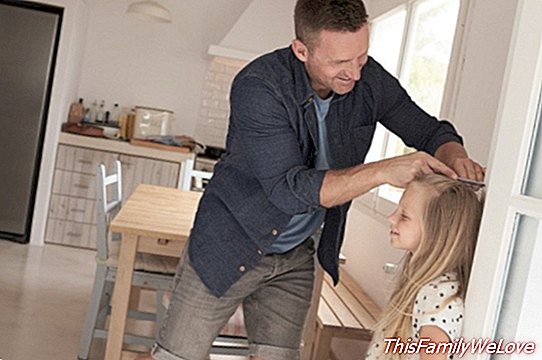Great in responsibility, small in stature

Being responsible is the ability to decide appropriately and effectively. And if we take this to the level of family education, it is convenient for children to begin to make decisions and face problems on their own since they are young to train in the exercise of responsibility.
It is clear that a child of five or six years can not be asked to be completely consistent with their actions, but it is true that at this age you can begin to demand that you assume certain obligations. If you we educate in responsibility, we will be sowing for the future, because this is a very important virtue that children should develop when they are still small.
Responsibility is not obedience
There are many parents who, at this point, often confuse obedience with responsibility. To lead our children towards a path of submission and total acceptance of our mandates is not to educate them in responsibility, far from it. Children, no matter how small, should have the right to reply. That is, when we send him to bed at eight o'clock in the afternoon he will most likely respond with a "but, why, Mommy?" or, simply, with a "I do not want". In these cases it is usually better to make him see that a responsible boy has to accept certain rules that force him "screaming" to go to bed without question.
In addition, children who are accustomed since childhood to the imposition usually end up reacting in the long run in two very different ways: either they rebel or, they become children unable to make any kind of decision on their own. Precisely for this reason, it is important that your level must begin to assume its errors, to pay for its faults and of course to fulfill your obligations in the proper way.
Logical consequences of liability
If we educate the child by offering him this margin of confidence, there is no doubt that he will acquire the necessary sense of duty. This path, hard at times and more at this age, will allow you to reap successes more and more frequently while benefiting from the positive consequences of such triumphs.
When our son checks that we trust him and that we do not hesitate to give him small orders (feed the bird, set the table ...) he can not help but feel proud. And even more so if he carries them out correctly and we congratulate him and cuddle affectionately for his good work.
If, on the other hand, we choose not to stimulate this field, our little one will end up becoming a completely irresponsible boy with the consequences that usually derive from it. The child who acts irresponsibly often suffers constant punishments and reprimands, significantly reducing their self-esteem.
How to avoid being irresponsible
Educating a child in responsibility demands constant "give and take". It is a task that must be carried out little by little and whose first successes are achieved on the basis of experience, of repeating certain acts daily and gradually.
In any case, it is difficult for a child to improve his behavior if he does not get any reward or praise for his behavior. That is why it is important to congratulate him on his small achievements, to encourage him in his failures and to teach him, with optimism, to assume the consequences of his own actions.
There is no doubt that our little one will remain irresponsible if the response he gets from us is excessive criticism, exposure to ridicule or simply shame.
Promote responsibility
To achieve all these objectives we will have to ensure that the child lives in a tolerant and patient environment. At the time, adults should be clear and coherent in expressing what we expect from them. The "Raulito, son, when you finish playing you must collect your toys", for example, must be a constant in the life of our son. This means that our attitude must always be the same, even when we are in an excellent mood or have had a good day at work and do not mind picking them up ourselves.
It is also essential to know how to accept that children make mistakes and that, therefore, they need to be explained the reasons for these errors, as well as the possible alternatives available. Only when parents act in this way do they contribute in the right way to the development of their future maturity.
To enhance this virtue we will have to offer, in addition, the maximum opportunities to make decisions. And all this, as soon as possible, according to the age and attending to the individual characteristics of our little one.
If our son has long since learned to clean himself, we must urge him to do it every morning. As much as that supposes having to get up a little bit more each day.
Marisol Nuevo Espín
It may interest you:
- The responsibility of children: how and with whom to be responsible
- The responsability. Educate in values
- Responsible children do not just do what they want
- Learn to be responsible




